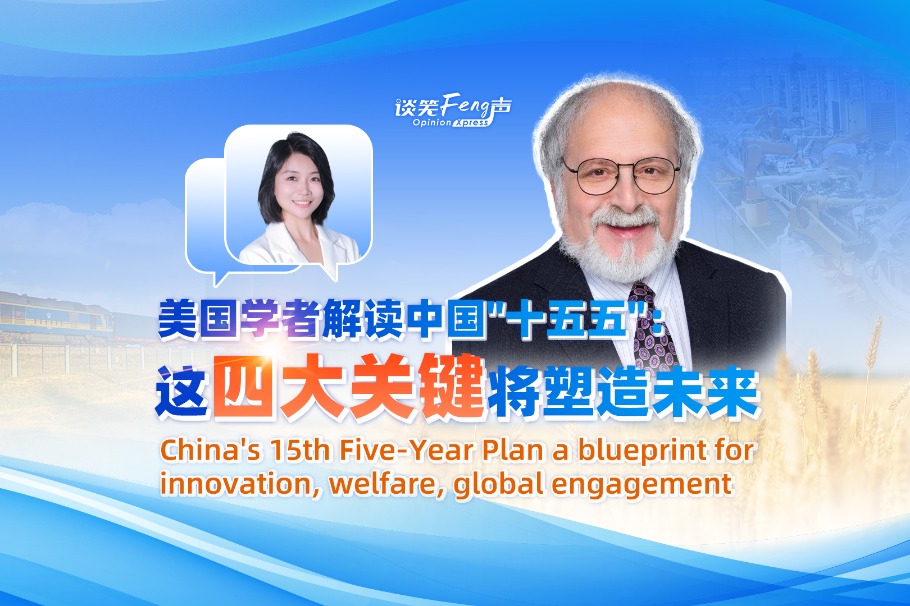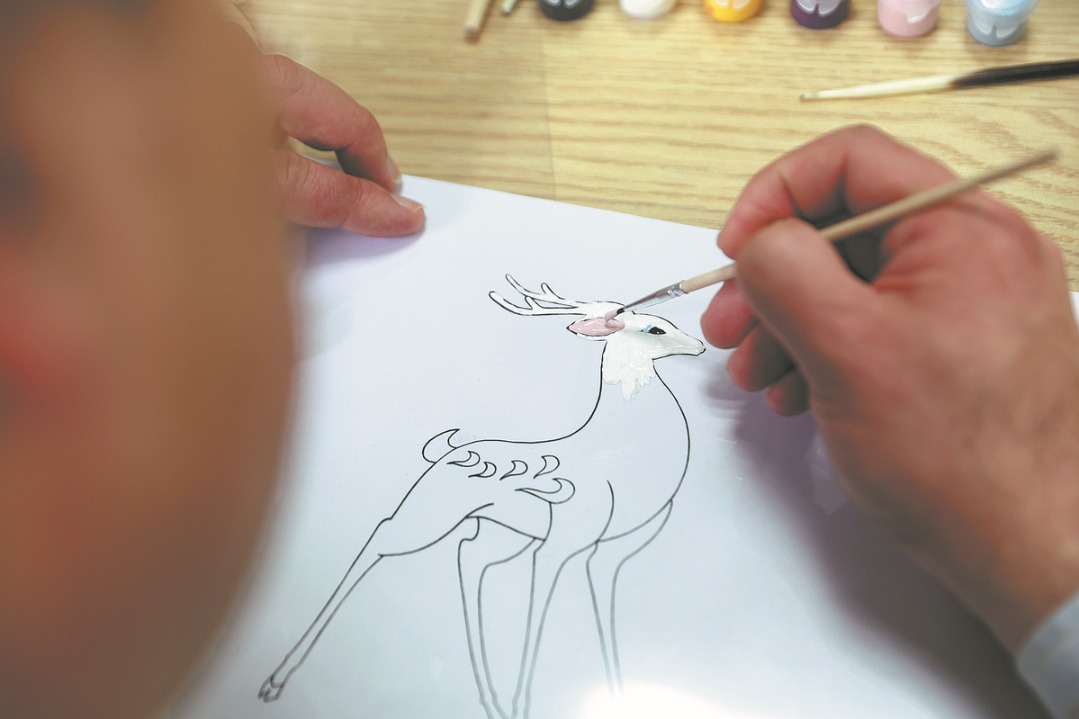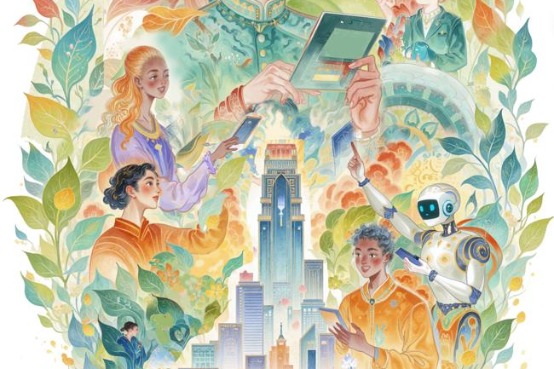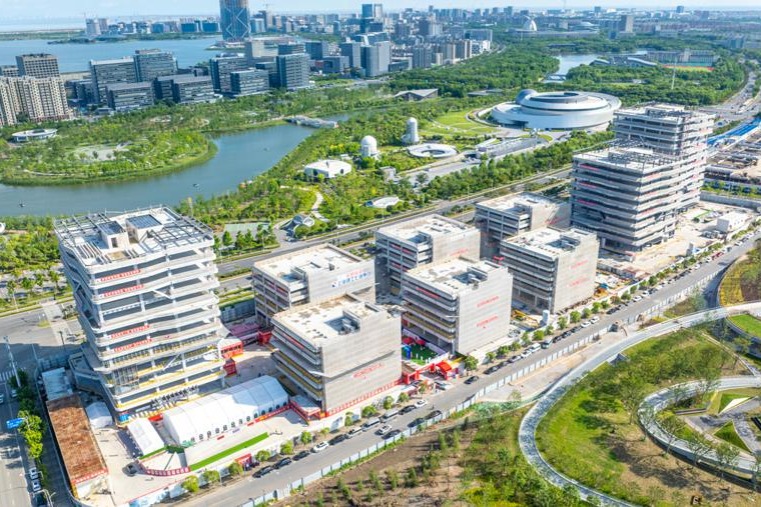Finding common ground
China and the EU have a critical role to play in shaping the future of our world

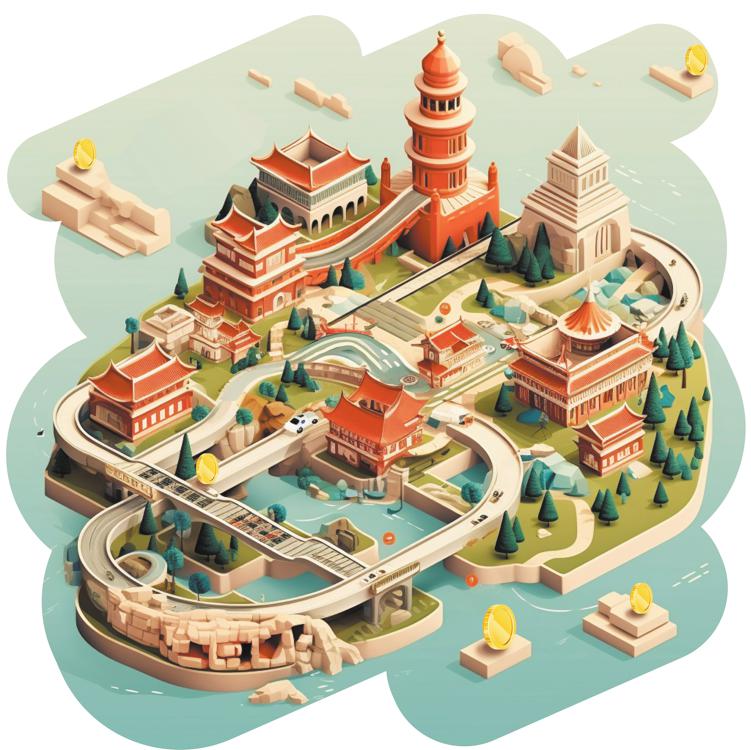
China and the EU have a critical role to play in shaping the future of our world
We are confronted with a world beset by crises, from regional conflicts and economic turbulence to the reverberations of anti-globalization sentiments, a global pandemic, rising inequalities, technological disparities, climate change, energy concerns, terrorism and cyber threats. The international security landscape is under its most severe strain since the end of the Cold War.
In these testing times, humanity is yearning for a world characterized by lasting peace and universal security. Evidently, no single nation can ensure these in isolation. The interconnectedness of our world requires us to work together, finding common ground and shared solutions. Our collective efforts can ensure a more stable and prosperous future, making the world a safer place.
China and the European Union, as two major global actors, have a critical role to play in shaping the future of our world. Both China and the EU are not only key players but also pivotal in safeguarding global peace and stability, propelling common development, and advancing human progress. The global significance of China-EU relations is becoming increasingly prominent in the turbulent and challenging world we are living in. Together, the two sides represent a convergence of civilizations, embracing the ideals of multi-polarity and economic globalization, and both affirming their commitment to multilateral governance. Our cooperation is not only in our mutual interest but also has a direct impact on global stability and global prosperity.
Our ongoing high-level dialogues have served as a testament to our commitment to enhancing cooperation, covering various aspects of environment and climate, digital affairs, economy and trade, and strategic dialogue. Nevertheless, it is really crucial to reinvigorate this partnership with enhanced trust and reduced mutual suspicion, embracing real openness over restrictions, and shared responsibilities over exclusion.
In this era of profound shifts, it is incumbent upon us to move beyond outdated paradigms that pit nations against each other. Our world indeed demands pragmatic solutions that are rooted in the complexities of today's international landscape. In light of this, I propose a pluralistic approach to China-EU cooperation.
And it is worth remembering that a country is more than its structures, more than its institutions, and more than its leadership. Rather, it is its people who breathe life into it. Promoting people-to-people exchanges is therefore paramount, encompassing interactions between companies, scientists, scholars, students, families and even tourists. This dynamic interchange is a catalyst for understanding, trust, and cooperation, and I would hope that between China and the EU, we continue to invest in these direct person-to-person exchanges.
President Xi Jinping has proposed successively the Global Development Initiative, the Global Security Initiative, and the Global Civilization Initiative. I think they fit very well into the agenda of the future of global governance. We need indeed to readjust, and reset the global governance. The UN system has given us a lot of benefits and dividends over the past 70 — or almost 80 — years. But there's a need for reset, and rebalance. Indeed, we have to better take into account all the views.
I think that the Global Development Initiative, the Global Security Initiative, and the field of green development are excellent contributions to the global agenda that we have to discuss in the upcoming year, and a couple of years, starting with the UNGA(the General Assembly) in autumn. And I would hope that this leads us to strengthen, again, the multilateral system that has suffered a lot from unilateral withdrawal by the US at certain moments raising distrust among blocs.
In the context of these initiatives, I think that co-investing, bringing together investment and capacities between economies is also a very strong peace-building policy tool. I'm personally a strong believer that economic cooperation and common infrastructure and co-investment not only bring better economic development, but also peace. Because people who trade and work together on projects will be more reluctant to engage in violence against each other.
To improve the connection and the infrastructure links between the economies, however, it is very important to do more than just interconnect. We should also look into the way we increase the interconnection and that way should be more than ever sustainable, so it can be virtual when possible, physical with real exchanges over roads and railways and through the air when needed, but improving resilience and improving sustainability of our connections, mobility and trades. So, I think that good cooperation that creates a real view on positive outcomes and win-wins is crucial.
Last month, the third Belt and Road Forum for International Cooperation was held in Beijing. Since its inception 10 years ago, the Belt and Road Initiative has grown into a popular global public good and a platform for international cooperation.
I would say that in terms of Belgium, even before the BRI, we had a lot of Chinese investment. I remember that I met, as a minister president of Flanders, the people from COSCO. For the Belgian economy, the links between the port area of Antwerp, Zeebrugge, and Shanghai and other ports in China, were crucial for development. Companies like Huawei and others are very well-established in Belgium and provide us with high-tech solutions. It goes a little bit beyond what the intentions of the BRI were. We also have an airport of Liege that functions as a distribution and dispatching platform for Alibaba. So we already have very good connections with China, as well as many enterprises that were closely together with China.
I think that the BRI today plays a more important role in countries with a weak infrastructure. Thus China joins forces with the West and with the leadership of countries in Africa to develop their infrastructure and unleash their economic potential. There it really pays out in terms of better accessibility, better service to the people. I was recently in a part of Africa where China has massively invested, for instance, in the railway connection. So I have witnessed what it brings to the people in their daily lives and also the economic potential of these better connections.
As the world goes through accelerating changes unseen in a century and is facing growing risks and challenges, the intercivilizational communication is particularly relevant. Through collaboration and dialogue, we can pave the way toward a world marked by stability, progress, and shared prosperity.
The author is the former Belgian prime minister. The author contributed this article to China Watch, a think tank powered by China Daily. The views do not necessarily reflect those of China Daily.
Contact the editor at editor@chinawatch.cn

















